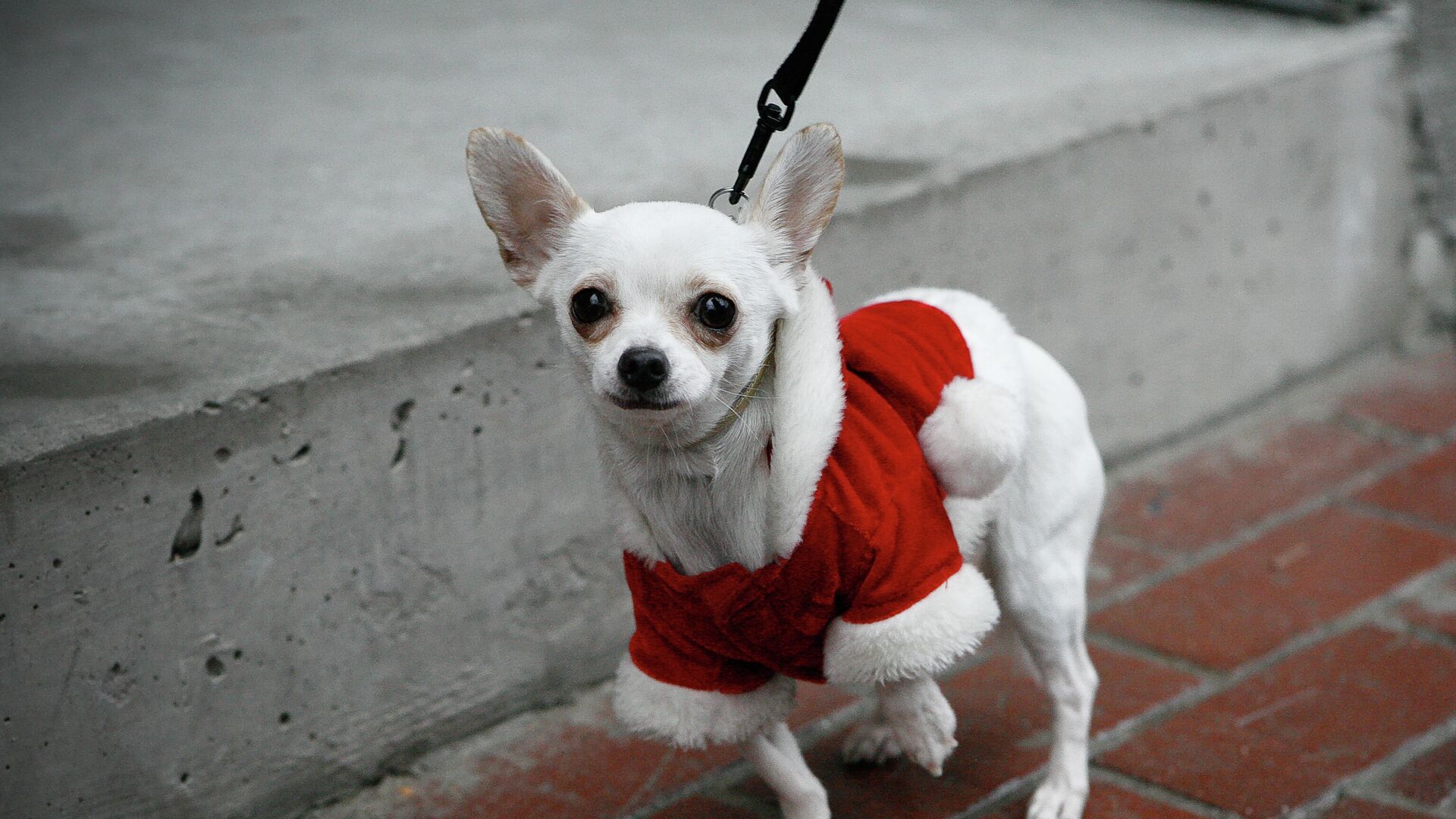https://sputnikglobe.com/20220202/friendly-dogs-fall-behind-dominant-ones-in-canine-hierarchy-study-shows-1092678660.html
Friendly Dogs Fall Behind Dominant Ones in Canine Hierarchy, Study Shows
Friendly Dogs Fall Behind Dominant Ones in Canine Hierarchy, Study Shows
Sputnik International
We think of our doggie pals as loyal and loving; "man's best friend". Who else would be happy to meet you when you're grumpy and tired after a long day at... 02.02.2022, Sputnik International
2022-02-02T09:05+0000
2022-02-02T09:05+0000
2022-02-02T09:05+0000
science & tech
dogs
https://cdn1.img.sputnikglobe.com/img/07e6/02/02/1092678634_0:0:3073:1728_1920x0_80_0_0_848348194c1041f22321dd1c7afca1ac.jpg
It seems that the friendlier and the more lovable a pup is, the lower it "ranks" in the dog hierarchy, a new study conducted by Eötvös Lorand University of Budapest, Hungary found. The team discovered it after observing some 1,082 dogs interacting and looking for five major personality traits: openness/energetic, friendliness/courteousness, trustworthiness, neuroticism/confusion, and openness/intelligence.These findings apply even to the cases where the doggos live in the same loving apartment: more extroverted and conscientious dogs tend to rank higher than friendlier ones. It appears that friendliness negatively impacts dominance scores among dogs.Additionally, age can impact rank in the dog hierarchy, as the researchers found older dogs were more likely to be dominant than pups."Dominance" is not a separate personality trait for dogs (humans, on the contrary, view it as one). However, differences in the personality traits of individuals in a group may affect the hierarchy, and therefore dominance may be correlated.Still, the findings of the study are unlikely to affect the way that humans love their tail-wigging pals, no matter what their "rank" in the canine hierarchy is.
Sputnik International
feedback@sputniknews.com
+74956456601
MIA „Rossiya Segodnya“
2022
News
en_EN
Sputnik International
feedback@sputniknews.com
+74956456601
MIA „Rossiya Segodnya“
Sputnik International
feedback@sputniknews.com
+74956456601
MIA „Rossiya Segodnya“
science & tech, dogs
Friendly Dogs Fall Behind Dominant Ones in Canine Hierarchy, Study Shows
We think of our doggie pals as loyal and loving; "man's best friend". Who else would be happy to meet you when you're grumpy and tired after a long day at work, even if you haven't brought any treats! But what does being friendly get a good boye in the dog hierarchy?..
It seems that the friendlier and the more lovable a pup is, the lower it "ranks" in the dog hierarchy, a new
study conducted by Eötvös Lorand University of Budapest, Hungary found.
The team discovered it after observing some 1,082 dogs interacting and looking for five major personality traits: openness/energetic, friendliness/courteousness, trustworthiness, neuroticism/confusion, and openness/intelligence.
These findings apply even to the cases where the doggos live in the same loving apartment: more extroverted and conscientious dogs tend to rank higher than friendlier ones. It appears that friendliness negatively impacts dominance scores among dogs.
Additionally, age can impact rank in the dog hierarchy, as the researchers found older dogs were more likely to be dominant than pups.
“As personality can slowly change with age, we needed to check whether our results still hold regardless of age. We found negative correlations between age and extroversion and age and openness while these traits have positive associations with rank," first study author Kata Vekony said. "Agreeableness had a similarly negative correlation with age and a negative association with the dominance score: older dogs are less agreeable, more agreeable dogs rank lower."
"Dominance" is not a separate personality trait for dogs (humans, on the contrary, view it as one). However, differences in the personality traits of individuals in a group may affect the hierarchy, and therefore dominance may be correlated.
Still, the findings of the study are unlikely to affect the way that humans love their tail-wigging pals, no matter what their "rank" in the canine hierarchy is.

